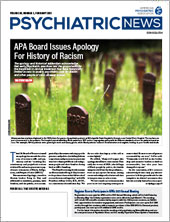It is well established that illness and death related to COVID-19 are inequitably impacting specific minority communities. According to the Centers for Disease Control and Prevention, nearly 40% of reported COVID-19 cases have been Black and Hispanic/Latino people, with the rate of infection of Indigenous Americans exceeding those of Black and Hispanic Americans. We need guided non-race-based policies and community responses to end unnecessary suffering and death.
In December, two vaccine manufacturers, Pfizer/BioNTech and Moderna, were granted an Emergency Use Authorization by the U.S. Food and Drug Administration for their vaccines. The first tier of health professionals began receiving the vaccines a few days later, and some communities should be receiving their doses before summer. Hispanic and Black Americans are among the groups that have the least confidence in the vaccine, according to William Wan in a November 23, 2020, report in the Washington Post, and the nation’s top health leaders are urging us to trust the vaccine by hosting live events and educational programs. Some of my patients are concerned about possible side effects and becoming infected with COVID-19, and others have a general distrust in the vaccines.
Moreover, vaccine uptake has been less historically among Blacks and Hispanics compared with non-Hispanic Whites, wrote Peng-jun Lu, M.D., Ph.D., et al., in a December 2015 report in the American Journal of Preventive Medicine. There are concerns that the vaccine developers have not taken into account racial/ethnic differences that might impact the vaccines’ effectiveness. Studies have shown that Black Americans’ and Hispanics’ hesitance can be traced to such abuses as not being informed they were participating in medical research, not being given informed consent, and having negative experiences with the medical system in general. Furthermore, Black and Hispanic individuals are more likely to experience subpar care in modern-day hospitals because of income disparities and racial bias. Distrust of government and institutions in communities of color is another barrier. It will take practical, plain-spoken messaging utilizing credible messengers and digital communications techniques to reach them and target their specific concerns about the vaccine. No single message or messenger is likely to be effective. The job rests on organizational leaders within trusted communities.
Psychiatrists have an important role to play as well. We have an ethical duty to ensure that our patients are given priority for vaccination. At this point, the vaccination plan does not refer to people with mental illness. Still, APA as an organization and we as physicians need to continue to advocate government officials to include people with mental illness in the category of people at increased risk for severe disease from COVID-19, a variety that includes those with underlying medical conditions. People with preexisting mental health conditions or substance use disorders may be particularly vulnerable to COVID-19, and a study suggested a bidirectional relationship. The study presents that people who suffered from COVID-19 were at an increased risk of psychiatric sequelae, and a psychiatric diagnosis might be an independent risk factor for COVID-19, according to Maxime Taquet, Ph.D., et al. in The Lancet Psychiatry posted November 9, 2020.
There is a limited supply of the COVID-19 vaccine, and difficult legal and ethical choices must be made regarding prioritizing access for individuals from underserved communities. The government should consider race to address past and current health disparities; ignoring members of minority communities when allocating vaccines could exacerbate these disparities even more. Regrettably, the law is inconsistent on whether race can be an explicit criterion for achieving equity and diversity in the distribution of the vaccine. We, as psychiatrists, need to continue to build trust around the vaccine with our minority patients. Here are some ways we might achieve this:
•
Discuss the topic with patients using a patient-centric approach.
•
Tailor your approach so that it promotes trust.
•
Include community leaders’ opinions—both within the institution and in the community—to promote vaccination and provide culturally targeted messaging.
•
Talk to patients not only about how the vaccine will protect them against COVID-19 but also that vaccination reduces the spread of the disease.
•
Discuss benefits, risks, and side effects of the vaccines and what to do should a side effect occur.
•
Do not use the mandatory vaccination theme as it is controversial and does not address the fundamental issues underlying patients’ hesitancy to get vaccinated. No studies have addressed whether use of the mandatory vaccination theme improves actual clinical outcomes. Also, it is important that you do not cross ethical boundaries by making patients feel they must get vaccinated; respect each patient’s autonomy to make his or her own decision.
•
Advocate government officials to include people with mental illness in the category of people at increased risk for severe disease from COVID-19. ■
“Coronavirus Vaccines Face Trust Gap in Black and Latino Communities, Study Finds” by William Wan is posted
here.
“Racial and Ethnic Disparities in Vaccination Coverage Among Adult Populations” Peng-jun Lu, M.D., Ph.D., is posted
here.
“Bidirectional Associations Between COVID-19 and Psychiatric Disorder: Retrospective Cohort Studies of 62,354 COVID-19 Cases in the USA” by Maxime Taquet, Ph.D., et al., is posted
here.


